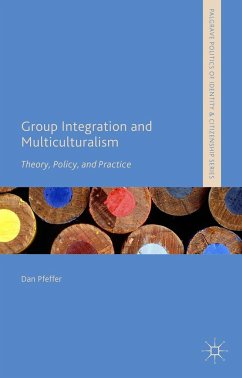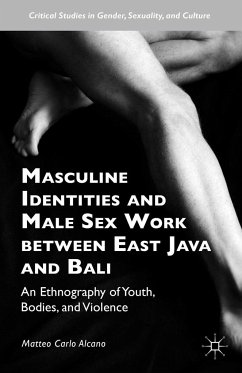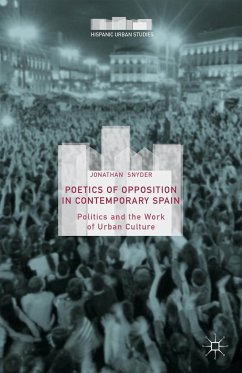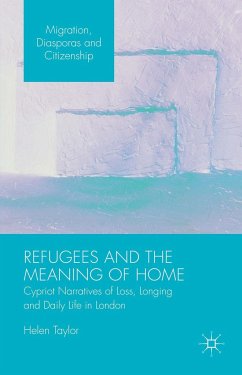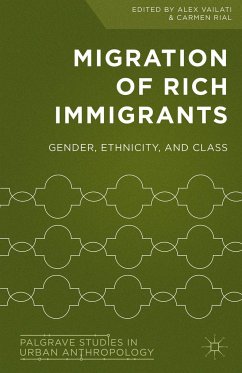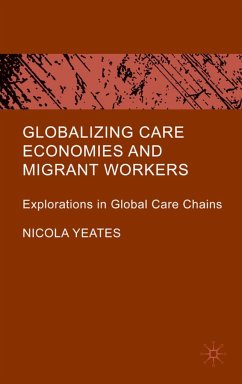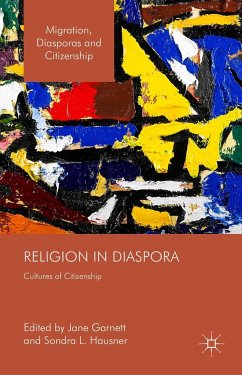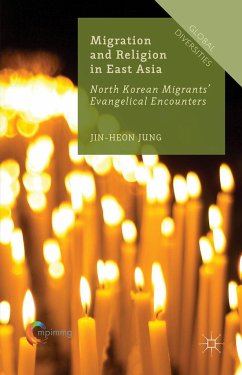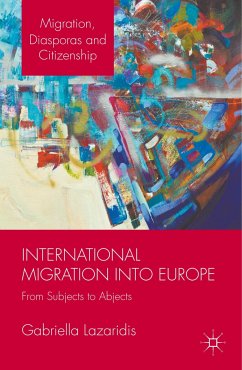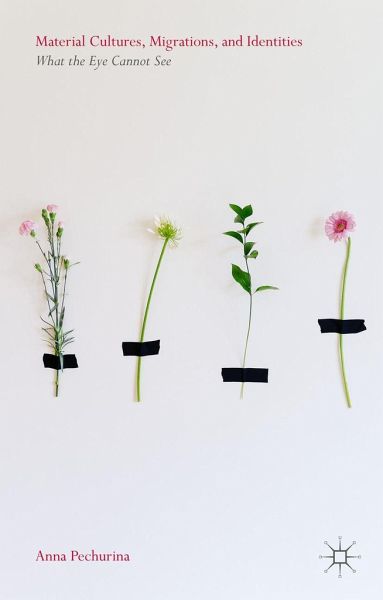
Versandkostenfrei!
Versandfertig in 6-10 Tagen
Weitere Ausgaben:

PAYBACK Punkte
19 °P sammeln!





Focusing on the experiences of Russian migrants to the United Kingdom, this book explores the connection between migrations, homes and identities. It evaluates several approaches to studying them, and is structured around a series of case studies on attitudes to homemaking, food and cooking, and clothing.
Anna Pechurina is Lecturer in Sociology at Leeds Beckett University, United Kingdom. She researches homes and material cultures in the context of movement and migration. Specifically, she studies the connection between post-socialist migrants' identities, homemaking, and sense of belonging.
Produktdetails
- Verlag: Palgrave Macmillan / Palgrave Macmillan UK / Springer Palgrave Macmillan
- Artikelnr. des Verlages: 978-1-137-32177-0
- 1st ed. 2015
- Seitenzahl: 171
- Erscheinungstermin: 12. August 2015
- Englisch
- Abmessung: 216mm x 140mm x 11mm
- Gewicht: 360g
- ISBN-13: 9781137321770
- ISBN-10: 1137321776
- Artikelnr.: 42801164
Herstellerkennzeichnung
Libri GmbH
Europaallee 1
36244 Bad Hersfeld
gpsr@libri.de
"In this richly descriptive and highly analytical book, Anna Pechurina introduces readers to a world in which migrants (in this case divers waves of Russian immigrants) achieve their diasporic identity through the use and display of material objects in the home. Using visual methodologies combined with in-depth interviews, she explores how a sense of Russianness is created in complex and even contradictory ways. A wonderfully evocative book which deserves to be read by students of migration, the home and family life alike." - Carol Smart, University of Manchester, UK
"A gracefully written analysis of what constitutes Russianness for those migrants who made new homes abroad and how material possessions they took with them from Russian motherland become an important means linking people, places and memories together. This is a fine example of investigative scholarship that explores the complex relationships between things, homes and identity in the context of transition, migration and change." - Elena Katz, University of Oxford, UK
"A gracefully written analysis of what constitutes Russianness for those migrants who made new homes abroad and how material possessions they took with them from Russian motherland become an important means linking people, places and memories together. This is a fine example of investigative scholarship that explores the complex relationships between things, homes and identity in the context of transition, migration and change." - Elena Katz, University of Oxford, UK
Für dieses Produkt wurde noch keine Bewertung abgegeben. Wir würden uns sehr freuen, wenn du die erste Bewertung schreibst!
Eine Bewertung schreiben
Eine Bewertung schreiben
Andere Kunden interessierten sich für


